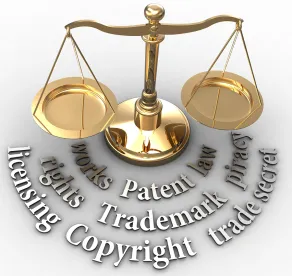PRESTON V. NAGEL: Jun. 1, 2017. Before Dyk, Taranto, and Hughes.
Takeaways:
-
The CAFC is barred under 28 U.S.C. § 1447(d) from reviewing the district court’s decision to remand because the remand was based on a lack of subject matter jurisdiction.
-
The CAFC found that while hearing state-law and patent-law claims together may promote judicial efficiency and avoid inconsistent judgments, the America Invents Act (AIA) did not require it to “favor these interests over § 1447(d) and the presumption of remand non-reviewability.”
Procedural Posture:
Plaintiffs sued Defendants in Massachusetts Superior Court, alleging fifteen state-law claims. Defendants answered and filed eleven counterclaims seeking declarations of non-infringement of several patents. Defendants also removed the case to the Massachusetts district court. The district court determined that it lacked subject-matter jurisdiction because Plaintiffs’ state-law claims did not arise under federal law and Defendants patent counterclaims did not present a justiciable case or controversy under Article III. As a result, the district court remanded the case to state court. Defendants appealed. CAFC dismissed.
Synopsis:
-
Appellate Jurisdiction—Remand Reviewability Bar: Under 28 U.S.C. § 1447(d), an order remanding a case to the state court from which it was removed is not reviewable on appeal or otherwise, subject to very limited exceptions. The CAFC held that under § 1447(d), it is precluded from second-guessing a district court’s determination that it lacks subject matter jurisdiction no matter how plain the legal error in ordering the remand. The CAFC also held that while hearing state-law and patent-law claims together may promote efficiency and avoid inconsistent judgments, these interests are not favored over § 1447(d) and the presumption of remand non-reviewability. The CAFC also noted that dismissal does not harm Defendants because they have an “alternative way to present [their] patent claims on the merits in federal court: a separate federal declaratory judgment action.”
-
Appellate Jurisdiction—Westfall Act Exception: In Osborn v. Haley, 549 U.S. 225 (2007), the Supreme Court determined that remands of certified Westfall Act cases are reviewable despite § 1447(d)’s bar on appellate review of remands. Under the Westfall Act, when federal employees are sued for common-law torts that occurred in the course of their official duties, the United States is substituted as the defendant after the Attorney General certifies that the employee had acted within the scope of his or her federal employment. 28 U.S.C. § 2679(d)(1)–(2). Unlike the ordinary case, in which the “federal district court undertakes a threshold inquiry” of “whether complete diversity exists or whether the complaint raises a federal question,” in a certified Westfall Act case, “no threshold determination is called for” because “the Attorney General’s certificate forecloses any jurisdictional inquiry.” Osborn, 549 U.S. at 243. The CAFC held that the Westfall Act exception under Osborn did not apply in the present case because the Massachusetts district court was tasked with a “typical case,” as it did not have an Attorney General’s certificate foreclosing jurisdictional inquiry, and therefore, was “still required to ‘undertake a threshold [jurisdictional] inquiry.’”
-
Appellate Jurisdiction—“Holmes Group Fix” to AIA: According to the CAFC, in Holmes Group, Inc. v. Vornado Air Circulation Systems, Inc., the Supreme Court held that the Federal Circuit lacked jurisdiction to hear appeals from cases in which the complaint does not allege a claim arising under federal patent law, but the answer contains a patent-law counterclaim. 535 U.S. 826, 827, 831-32 (2002). Subsequently, members of Congress expressed concern that Holmes Group could erode the uniformity in patent law. As a result, Congress made three changes in the AIA to address federal jurisdiction of patent claims: (1) 28 U.S.C. § 1338(a) was strengthened to clarify that state courts had no jurisdiction over any claim for relief arising under any Act of Congress relating to patents; (2) the Federal Circuit’s exclusive jurisdiction was extended to include cases with compulsory patent counterclaims; and (3) a provision was added to permit a party to remove to federal court a case in which any party asserts a patent claim. These changes are also known as the “Holmes Group”
Here, Defendants argued that the present case presented an “extraordinary” case like the Westfall Act exception to § 1447(d), permitting appellate review. Specifically, Defendants contended that, by depriving the state court of jurisdiction to hear patent claims (including counterclaims) and by creating a removal provision targeted at patent claims (and counterclaims), Congress, through the “Homes Group fix,” created a vehicle for a defendant’s patent counterclaims to be heard in federal court alongside a plaintiff’s state-law claims. The CAFC rejected this argument and concluded that nothing in the AIA operates like the Attorney General’s certification under the Westfall Act, which was of prime importance to the Supreme Court in Osborn because it foreclosed any jurisdictional inquiry.






 />i
/>i

